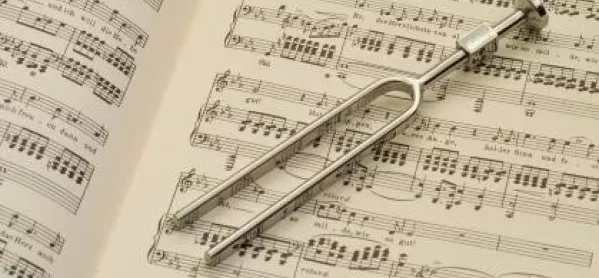A “crisis” in music in England's schools has been revealed by a new survey, which highlights how teachers are feeling isolated and provision is shrinking.
The survey of almost 500 schools, carried out by Sussex University, shows how the subject is under pressure on a number of fronts. Ally Daubney, co-author of the research, warned that “the situation is now at crisis point in many secondary schools”.
Here are the key findings:
1. The majority of schools no longer have compulsory music lessons in Year 9. Six years ago, 84 per cent of schools insisted on music in Year 9.
2. Some schools did not offer music as a curriculum subject in Year 7 and in others it was taught only on an "enrichment day".
3. More than a third (35.8 per cent) of schools had fewer staff in music departments than two years ago, while staffing levels had risen in just 14.6 per cent of schools – mainly in line with pupil numbers.
4. Some 18 per cent of schools did not offer GCSE music, and 8 per cent of those schools that did offer GCSE music offered it outside of core curriculum time (e.g., after school).
5. Almost a third of schools (31 per cent) had one or fewer full-time equivalent members of staff in the music department.
6. In the survey, 59 per cent of respondents felt that the EBacc had had a negative impact on provision and uptake of music in their school.
7. Some 70 per cent of music teacher respondents reported teaching outside their subject area since 2016.
The decline of music in schools?
The survey summary reveals that multiple respondents had mentioned that there were potential redundancies for music teachers next year, and it states: "There are considerable concerns about professional isolation as a growing number of departments have one person only teaching music across the school. It was also pointed out how this negatively impacts the wider musical life of the school."
A Department for Education spokesperson said: “We take the study of the arts extremely seriously, which is why music and art remain compulsory parts of the national curriculum up to age 14. We invest heavily in arts and music subjects, with more money going into education programmes to support them than anything else aside from PE.
“In total, we have invested nearly £500 million in music and arts education programmes between 2016 and 2020, which includes £300 million for a network of music education hubs to make sure every child has the opportunity to learn a musical instrument.”




